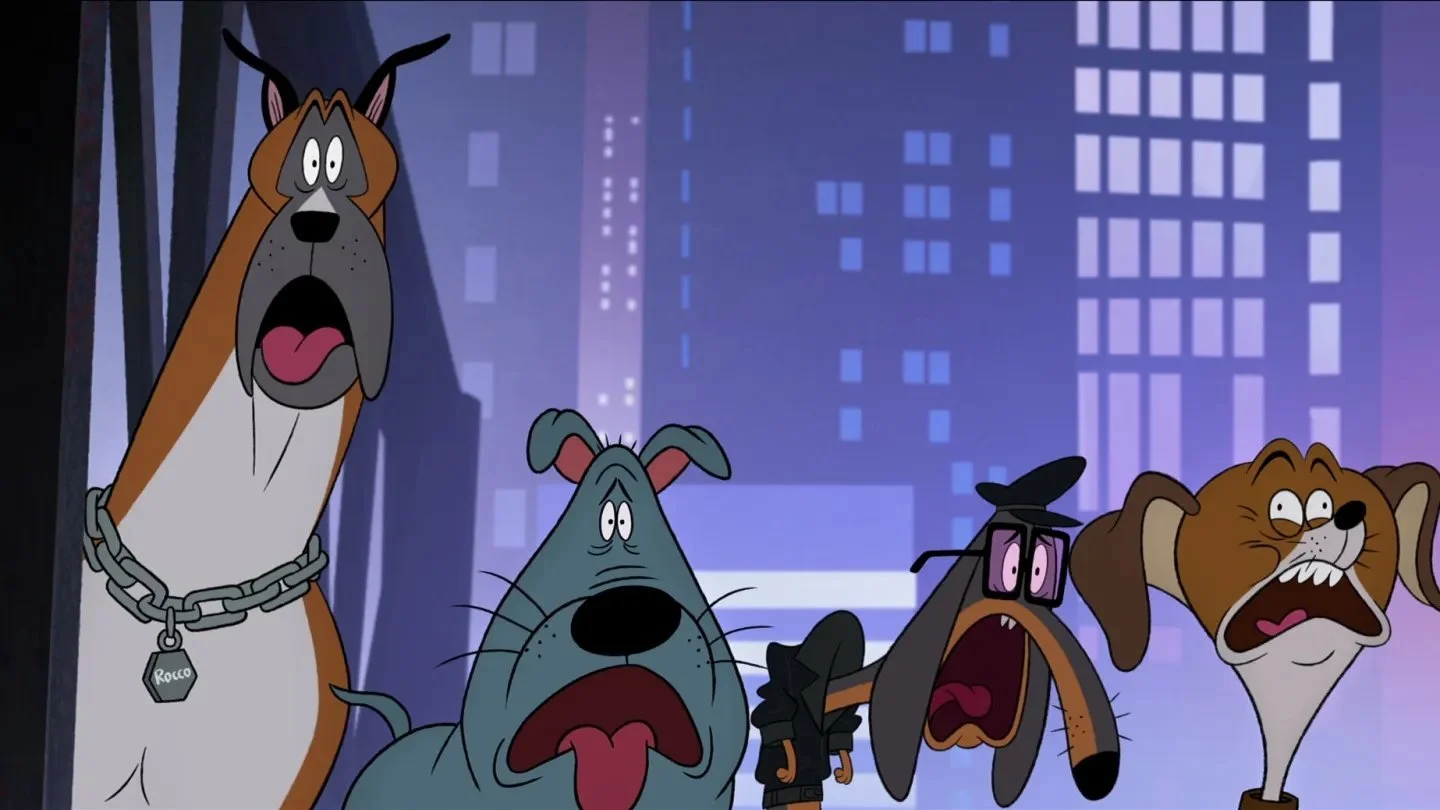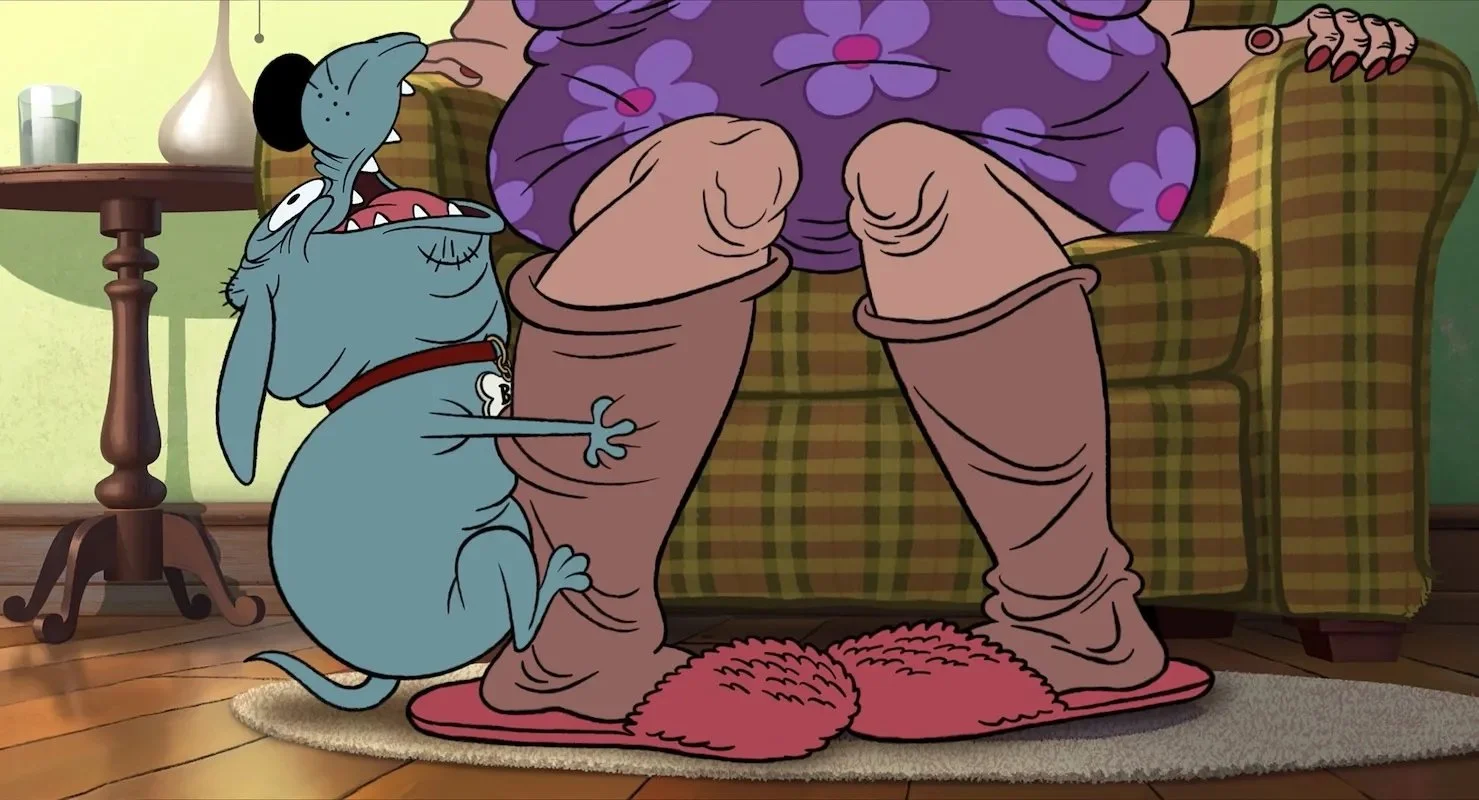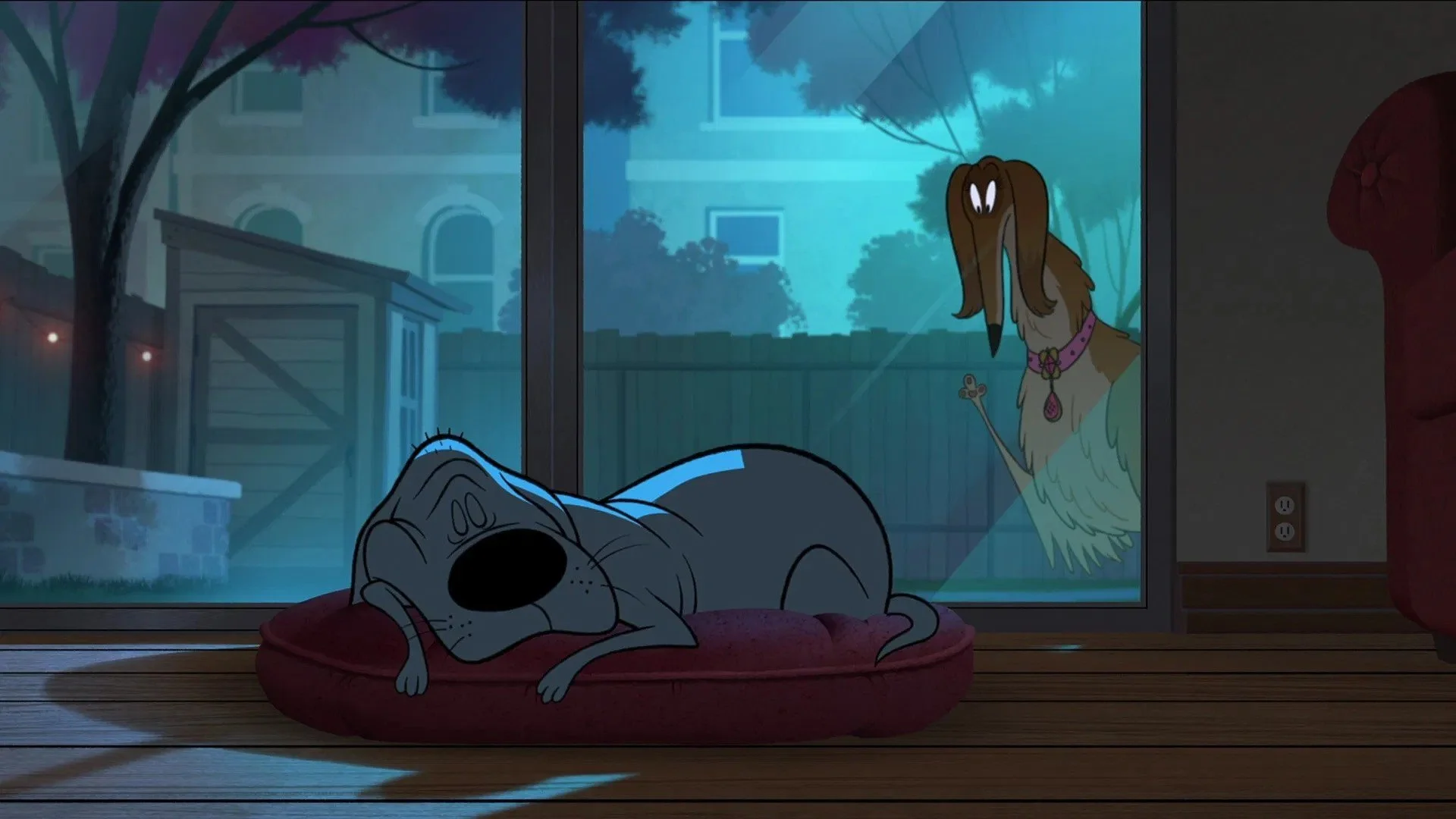‘Fixed’ Review: Nothing Can Fix This Dated and Unfunny R-Rated Animated Film [Fantasia 2025]
While Genndy Tartakovsky has not lost a touch animating expressive characters and worlds, his latest offering, the R-rated Fixed, is painfully unfunny and contains far too much dated humor.
To cap off this year’s Fantasia International Film Festival, after nineteen intense days of some of the most eclectic genre films the world has to offer, audiences are treated to the Canadian premiere of Genndy Tartakovsky’s long-gestating Fixed, which might have not gotten a release at all if Netflix didn’t step in to give this R-rated 2D animated picture a home, after David Zaslav and Warner Bros. Discovery dumped the project. Tartakovsky was also the recipient of this year’s career achievement award, alongside composer Danny Elfman, who received the prize during a special restoration screening of The Nightmare Before Christmas, which was preceded by the world premiere of Eddie Alcazar’s animated short Bullet Time.
It’s a massive get for a festival that has usually been known for more obscure, independent, genre pictures. But as they gained notoriety over the years, Fantasia has been the home to many legendary screenings. Moreover, the fact that Fixed will not be seen on the big screen beyond the festival walls adds an even greater layer of importance to its screening as Fantasia’s closing film. Of course, the anticipation was palpable because there was a time when none of us thought that Tartakovsky’s film would make it to a screen. Not just the big screen, but any screen. The fact that it’s being released on Netflix at all feels like a miracle, because the film itself is far too inappropriate even to be marketable and profitable.
One understands why Warner Bros. didn’t think the movie would work, but many will argue that Sausage Party, South Park: Bigger, Longer & Uncut and Team America: World Police were sizable successes, even if they had the difficult task of being animated films for adults. However, Fixed goes one step further than anything shown in those three movies combined, and this isn’t hyperbole. The 86-minute film is frequently vulgar, sexually explicit, and shockingly violent – essentially, the perfect film to premiere at the Hall auditorium on the last day of Fantasia after many attendees have seen a bunch (and I mean a bunch) of f–ed up movies (and this year, there were many).
It’s essentially Genndy Tartakovsky’s Trash Humpers (or Fritz the Cat, if we want to keep it in the realm of animation), and in many cases, it can be considered as a feature, not a bug. I, myself, am a massive fan of Tartakovsky’s work and believe he is more than deserving of a career achievement award for everything he’s accomplished in the world of animation, and helped push the medium forward in ways that few have envisioned. He was also an influential part of my childhood, from countless days spent watching episodes of Dexter’s Laboratory at home to growing up with the peak of the Hotel Transylvania franchise.
The man can do it all, but hasn’t done something quite like Fixed, which is why, on paper, I was looking forward to sitting down and finally watching this already much-talked-about affair. Sadly, the film, which took over seventeen years to make, seems to be stuck in 2008, with one dated joke after another offering few laughs and thrills, as Tartakovsky provokes without intent for 86 very long, very tedious minutes. It is laudable that, in this ecosystem, such an animated movie can be released (even if it took many hurdles for it to be on our screens), and that it looks this good. For all of its flaws in the screenwriting department, Tartakovsky’s understanding of animation as an art form can’t be overstated. His characters – and the world they populate – are vibrantly drawn and expressively realized.
Some of the more successful jokes are purely visual, notably one (incredibly bloody) sequence involving a vicious squirrel chase gone wrong. It’s the type of humor that Tartakovsky has always succeeded at the most: morbid, often random, punchlines occurring at the most awkward moment after a shocking bout of visual comedy. These would get belly laughs out of me, and it felt good to see one of my favorite artists at work doing something so unapologetically incorrect in every sense of the term.
However, most of Fixed doesn’t contain that same sauce. It has far too many poop and sex jokes, and few of them actively work. Some may argue that the film itself justifies this succession of body humor through its plot, of a dog named Bull (Adam DeVine), who has twenty-four hours to have the time of his life with his friends, Rocco (Idris Elba), Fetch (Fred Armisen), and Lucky (Bobby Moynihan), before he gets neutered. And yes, that undoubtedly permits Tartakovsky to go all in on as much inappropriate humor as he can, especially during its climax (pun slightly intended), where Bull professes his love to Honey (Kathryn Hahn) in a relatively…*ahem*...unique way.
If you were fooled into thinking Fixed is a film for children, this scene will undoubtedly confirm that it’s not. The thing is, though, as much as Tartakovsky pushes buttons and takes his animated characters to extremes that Ralph Bakshi might have been afraid to take Fritz the Cat in, the juvenile humor is far too stale for the expressive animation to go this hard (apologies once again for the puns). It’s almost as if Tartakovsky had bare bones of a script and decided to animate as much raunchy material as he could and work everything else later down the line, without a real desire to make something genuinely memorable instead of purely provocative, just because he can.
It isn’t as refined as his previous works, which baffles the mind considering the litany of masterpieces Tartakovsky has under his belt. Even the voice cast doesn’t inspire many memorable turns, save for Idris Elba, who has, in recent memory, developed a strong knack for voice acting in the Sonic the Hedgehog franchise. He essentially adds the same knacks from Knuckles to Rocco, which could’ve been lazy, but actively works in the character’s favor when you begin to notice his traits within the world Tartakovsky has created.
DeVine, on the other hand, doesn’t have an efficient sense of comedic timing that could otherwise make Bull pop off the screen. His character is as unmemorable as most of its star-studded lineup, including Hahn’s Honey, who is appallingly written and often objectified in ways that, even in provocative comedies, are completely unacceptable in today’s standards. The scene I was mentioning above, when Bull professes his love to Honey, is the perfect example of this. However, discussing it would mean spoiling what is arguably the movie’s most jaw-droppingly baffling sequence, which will likely garner the most controversy upon its release, and you’re better off checking it out on your own. You may not even believe it’s real.
Because of this, it’s a shame that Fixed falls flat on its face more than it entertains, because Tartakovsky is one of our foremost animators who has done so much for the medium, through cinema and television, and is more than deserving of accolades that recognize the work he has done as a serious artist. Even long after Dexter’s Laboratory and Samurai Jack have ended, he still tries to find new ways to broaden animation to newer horizons. Sadly, Fixed may be remembered as Tartakovsky’s first – and hopefully only – misfire, in a career filled with so many memorable efforts.
As far as Fantasia’s closing film goes, there have been worse titles closing out the festival, but it does cap off what was a relatively underwhelming year for genre film, even if the people – and the atmosphere of Fantasia itself – never disappoint. Here’s to the 30th edition next year, which will hopefully be worthy of the reputation it has solidified since its inception…



